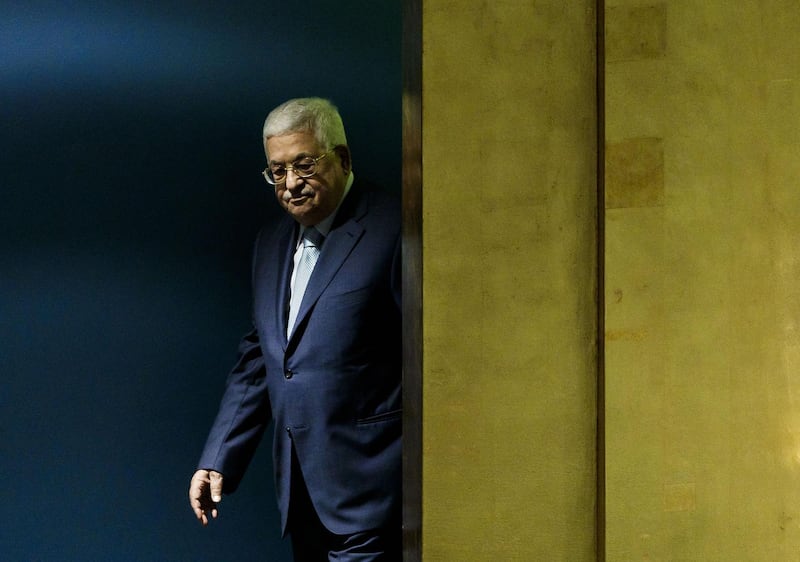Palestinian leaders have seldom faced good choices. Resistance of an Israeli occupation that stifles aspiration and economic progress is complicated by deep internal divisions. Today the Palestinian President Mahmoud Abbas and the leadership of the Palestinian Authority are faced with a daunting prospect: an American plan for "peace" that rests primarily on Israeli interests. Defunding UNRWA, moving the US Embassy to Jerusalem and declaring full support for Israel have all preceded this so-called plan. Mr Abbas has practically cut off ties with the US administration which, in turn, shuttered the PLO office in Washington DC. A path forward is difficult to discern.
What is clear is that the Americans are forging ahead. US President Donald Trump announced last week that the plan should be ready within two to four months. His team is working to that deadline. He has also declared his desire to have the deal signed within his first term – that is before autumn of 2020. He isn’t the first American president to have set his sights on striking such a deal, or his own internal deadlines for it. Barack Obama famously placed his first call as president to Mr Abbas and pledged a deal in his first term. George W Bush hosted a historic international meeting in Annapolis. Both events came to nothing. There is no guarantee that this time will be any different – although the Americans are taking unilateral steps to push the agenda.
Saudi Foreign Minister Adel Al Jubeir said last week that it was “too difficult” for the Palestinians and Israelis to negotiate the entire deal and that his country had called on multiple US administrations to present the parameters of a deal for the Palestinians and Israelis to then come to an agreement. With American leverage over the Israelis, this could be an opportunity to move closer to a deal.
Mr Trump frequently receives deserved criticism about his positions on Palestine, but at least he is frank. He publicly told Israeli Prime Minister Benjamin Netanyahu that "we are 100 per cent with Israel". It is hard to imagine what incentive the Israelis now have to negotiate when the broker of the deal has already announced its full support in advance and cut off ties with the Palestinian Authority. Mr Trump also announced his belief in the two-state solution last week – for the first time. While some are touting Mr Trump's statement as an opportunity, in reality he is stating what international consensus is, as determined by UN resolutions.
Watching Mr Abbas deliver his country’s statement to the UN General Assembly, his frustration was apparent. Starting his speech with the words “Jerusalem is not for sale”, he struck at the heart of the Palestinian question and its global significance. The US moving its embassy to Jerusalem inflamed Palestinians, Arabs, Muslims and Christians. As King Abdullah of Jordan eloquently put it, Jerusalem matters to billions of people.
The rest of Mr Abbas’s speech reiterated his rejection of the American moves and his commitment to resist the occupation. However, it did not provide a path forward, except in calling for the Quartet – that is the UN, the European Union, Russia and the US – to resume its role in working towards peace. This call is unlikely to yield results as the Americans have no intention of conceding ground to the Quartet's other members.
Today, Mr Abbas has five options. First, he could continue in the path of ignoring the Americans and their plan – a strategy that further undermines the Palestinian position.
Second, he could decide to re-engage with the US and try to influence its planning process, but, with a complete breakdown in trust and relations, that is unlikely to bring much change in current American thinking.
Third, Mr Abbas could decide that another Palestinian leader should negotiate with the Americans and appoint a successor. The issue of internal leadership and succession in the PLO is an important one, but this option would not solve current challenges and could lead to internal disarray. Legacy weighs heavily on Mr Abbas – and on the PLO. Resigning now would, in his eyes, be an abandonment of the “reasonable” position he has promoted.
Fourth, he could dissolve the Palestinian Authority altogether. Many have said that it should be liquidated and that the day-to-day difficulties of ruling over an occupied land should be left to Israel. He can only play that card once, though. If Mr Abbas was to take this drastic step, he would push the Palestinian issue to the periphery without a clear alternative.
The fifth option, and perhaps the most viable one, is to build a strong coalition of nations and organisations that can rally for the Palestinians. Part of this is what the Palestinian Authority is currently doing, redoubling diplomatic efforts to be recognised as a state by European countries. This week, Palestine became chair of the G77 plus China grouping at the UN. While the grouping is limited in the scope of what it does, the significance lies in the fact of Palestine being recognised as a state chairing an international grouping.
However, these efforts must be accelerated with a clear Palestinian commitment to and consensus on the Arab Peace plan of 2002. Working systematically with the Egyptians, Gulf Arab countries and Europeans to solidify the Palestinian position in the coming turbulent months – and having a coherent response to any American plan is critical.





